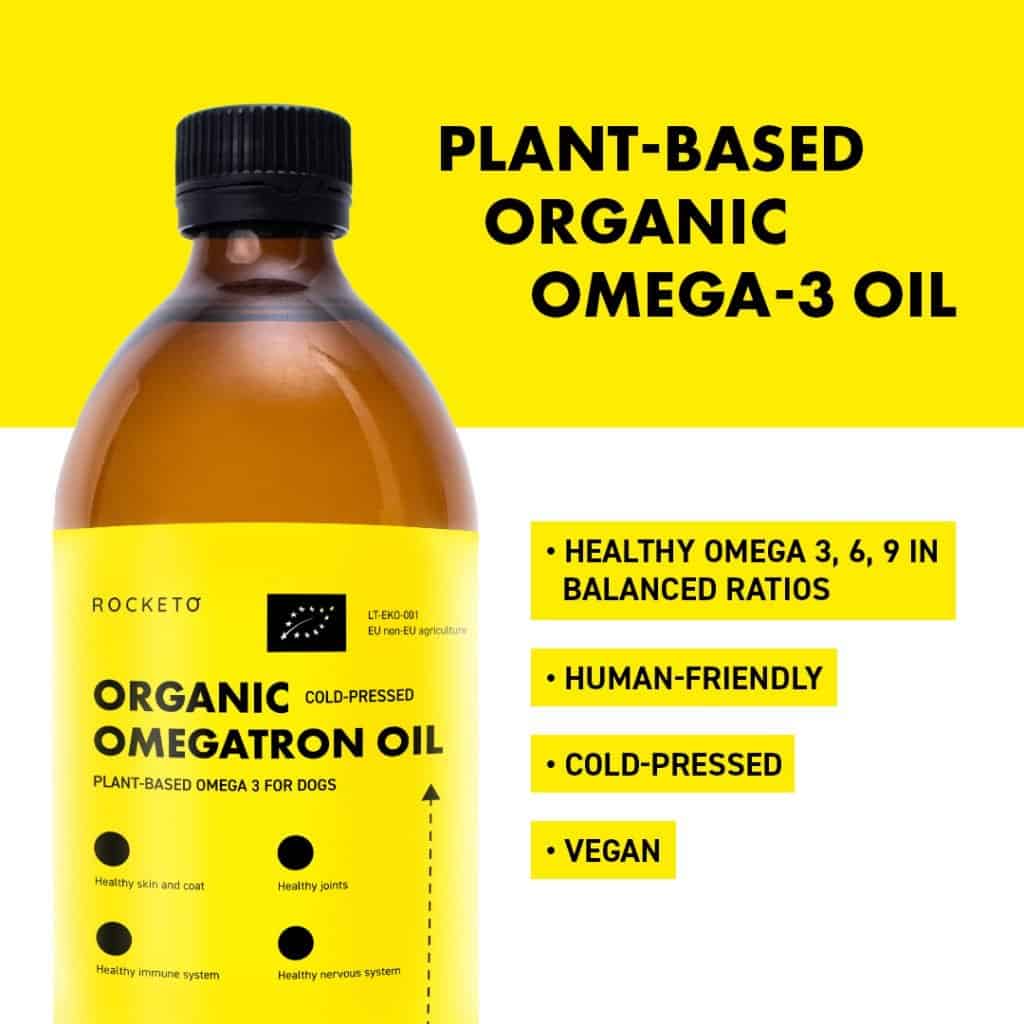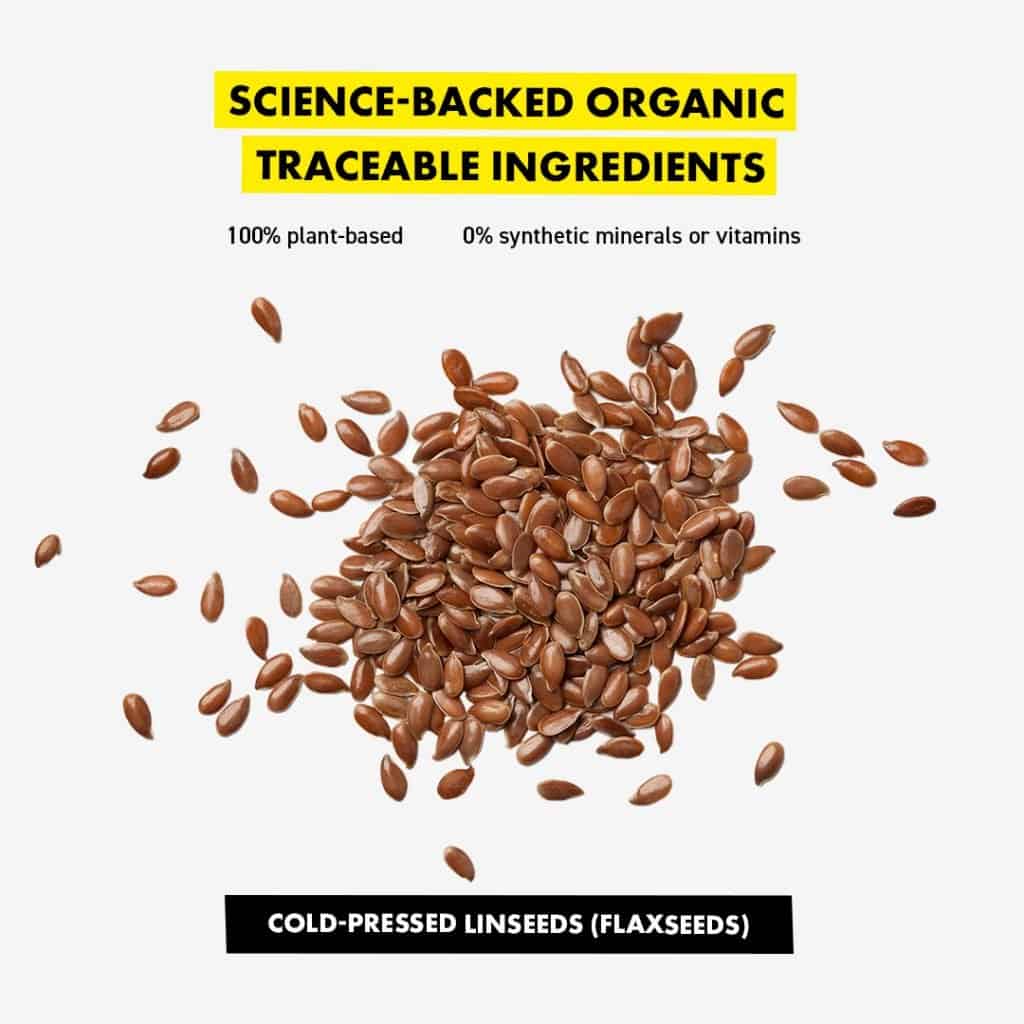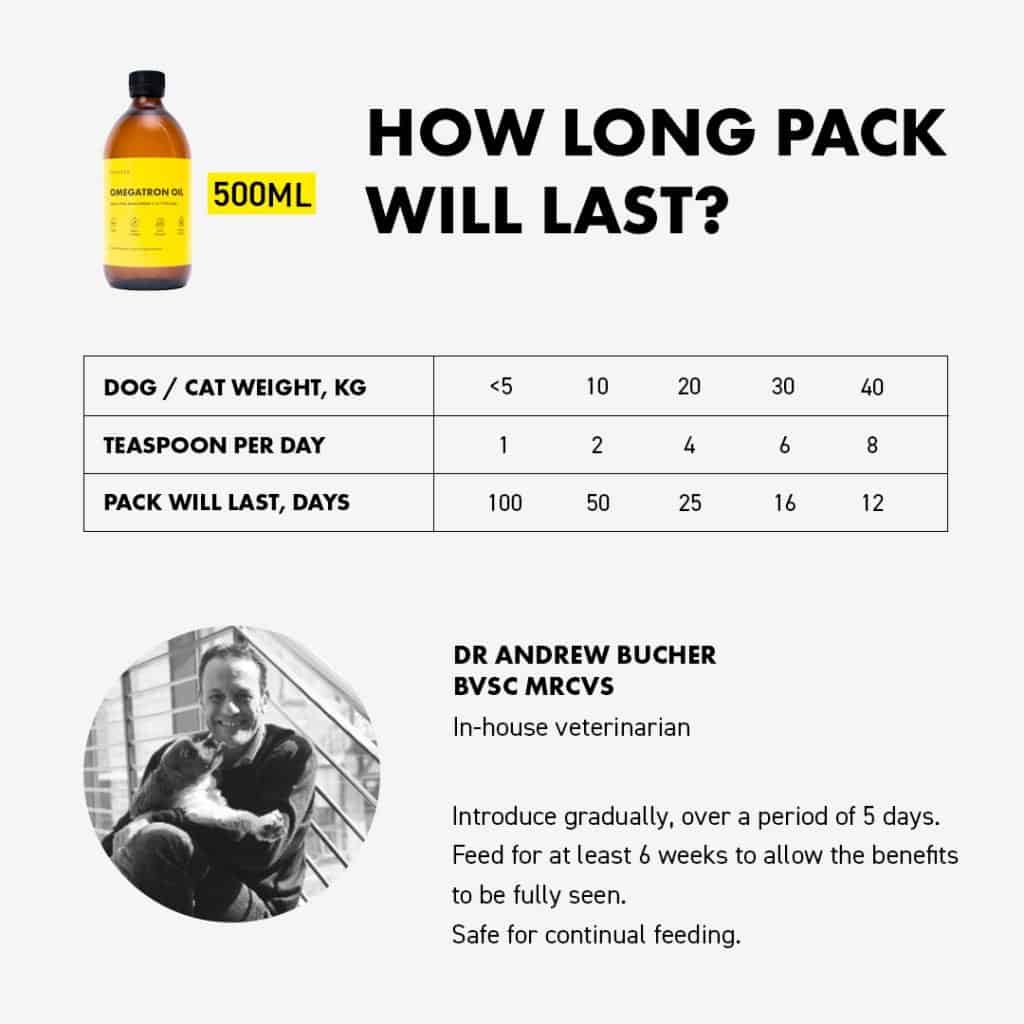How can I tell if my dog has an omega-3 deficiency?
Although there isn’t a single symptom that points to an omega-3 deficiency in your dog, there are a few signs you should keep an eye out for. These are dull or dry coat, hair loss, obesity, eye problems, poor wound healing or muscle weakness.
Before giving your dog any supplements or drastically changing their diet, we would recommend that you discuss it with your vet first. They will be happy to put your dog’s need of omega-3 in context by customising their diet or their daily intake of supplements.
What is omega-3 for dogs?
Omega-3 is a group of polyunsaturated essential fatty acids. If your chemistry is a bit rusty, don’t worry – we’ll break it down for you.
Fatty acids: these are a building block for good general health. They store energy, help the body absorb certain vitamins and play a huge role in controlling hormones
Essential: this is a short way of saying that your dog’s body can’t produce the fatty acids on its own. They must be taken from food or supplements.
Polyunsaturated: the polyunsaturated part means that this is a healthy type of fat. You’ve probably heard of good fats and bad fats. This is the good type of fat that you want to make sure your dog doesn’t run low on.
What foods provide omega-3 for dogs?
The ideal source of omega-3 for dogs depends on what type of fatty acid your dog needs. The three main types of omega-3 fatty acids are alpha-linolenic acid (ALA), eicosapentaenoic acid (EPA) and docosahexaenoic acid (DHA).
ALA is the fatty acid that can be found in plant sources, such as nuts and seeds. This type of fat is a somewhat indirect delivery method. Before the body can use it, it has to convert it into the other two main essential fatty acids. This takes longer than normal to happen, so although it’s okay to use it for a puppy, it’s not the best omega-3 source for an older or ill dog.
A faster and more practical way for your dog to get omega-3 fatty acids is through food sources rich in the two other main omega-3 fatty acids: EPA and DHA. These can be found in fatty fish oil. ROCKETO has made a safe solution to access the fatty assets – We have found that linseeds have the higher quality acids which we have implemented in our products range.
WHY NOT FISH?
Fish itself is not harmful to dogs, but the way we prepare it can cause problems. Fish cooked in too much oil can cause GI upset in dogs, or even lead to serious illnesses such as pancreatitis. Seasonings may also cause serious health problems for dogs, especially if they contain toxic ingredients, like garlic. The biggest risk of feeding fish to dogs, however, is bones.
CAN DOGS EAT FISH BONES?
Fishbones are small, brittle, and dangerous. They can lodge themselves in your dog’s mouth, throat, stomach, and intestines, sometimes even perforating the organ wall. Not only is this painful, it can also result in an expensive visit to the veterinarian. While there are plenty of anecdotal stories about dogs eating fish bones without issues, in this instance, it is better to heed the advice of veterinarians and play it safe.
HOW ABOUT RAW FISH?
Raw fish is at risk of carrying harmful bacteria like
salmonella and listeria. This is problematic for two reasons. One, it can make your dog sick, and two,
according to the FDA, it can also make you and other members of your family ill. This is especially worrisome for small children, who may come into more contact with your dog’s saliva than adults, and for people with compromised immune systems. If you choose to feed a raw diet with fish, make sure you take the appropriate precautions suggested by the FDA for preparing your dog’s meals, like thoroughly disinfecting all surfaces and bowls after use, and washing your hands.
The most advanced access to OMEGA-3 without harm
Omega 3 is most commonly known for its anti-inflammatory properties. And while this attribute alone is fantastic for ageing dogs with arthritis, it can also help with other elements of ageing such as the increased risk of cancer and mental decline.
Omega-3 is also great for puppies – supporting brain and optical development, and helping dogs of every age recover from injury quicker. Our Omegatron is plant-based which has benefits including:
- 🟡 Less oxidation than fish oil
- 🟡 More sustainable than fish oil
- 🟡 No risk of heavy metal pollution associated with sea-life sources
 THE MEGA – OMEGATRON
THE MEGA – OMEGATRON

HOW WE ARE DIFFERENT?
All the ingredients in Rocketo are 100% natural, from whole foods and herbs. We do not include any synthetic vitamins or minerals, and all are dehydrated very gently to ensure they retain their nutritional profiles. This means that all the nutrients are very bioavailable — just like nature intended! Believe it not – we have a super long but extremely helpful blog post about
our food difference.

 THE MEGA – OMEGATRON
THE MEGA – OMEGATRON


